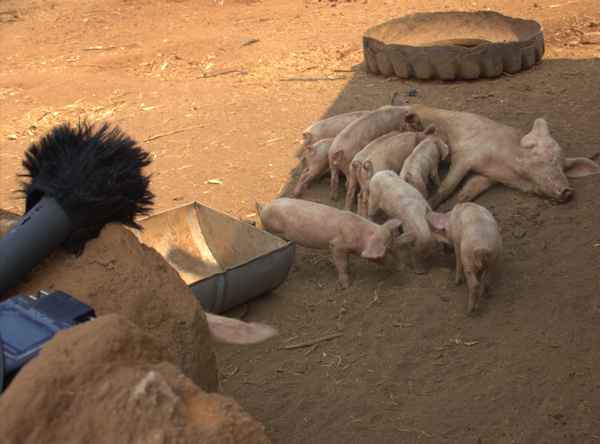 Good News from the Institute for Organic Farming: It is there and thriving. Since five years it has been self sustaining – without any funding other than tuition and fees for the education the institute provides. It has moved to a place 30 kilometres north of Nairobi. Students of the agricultural faculty of Jomo Kenyatta University of Technology can add a degree in Organic Farming to their academic awards.
Good News from the Institute for Organic Farming: It is there and thriving. Since five years it has been self sustaining – without any funding other than tuition and fees for the education the institute provides. It has moved to a place 30 kilometres north of Nairobi. Students of the agricultural faculty of Jomo Kenyatta University of Technology can add a degree in Organic Farming to their academic awards.
All posts by Ulli
Kenyan Institute for Organic Farming (year 2000 text)
Bio-farmers on the school bench
3 wooden poles joined together form the letter A. From its apex a stone hangs down on a ribbon as a plumb. Farmers in the Kenyan uplands use this so-called “A-frame” to identify the landscape’s contour lines. Along these lines ditches are dug in which the water collects when it rains. Planted with banana trees and Napier grass the ditch gardens yield a good crop,also providing the necessary animal feed. Continue reading Kenyan Institute for Organic Farming (year 2000 text)
Community Health Workers 2015
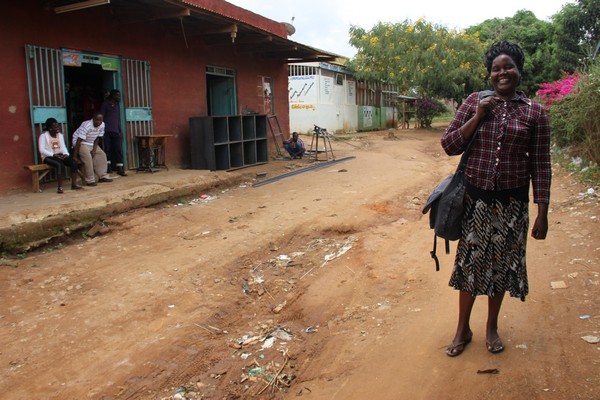
20,000 community health workers were financed by the German government for about ten years, but the program was terminated in 2006. At the German Agency for International Cooperation in Nairobi, no evaluation or final report can be found. The concept was probably outdated at some time I am told. Kenyans do know about contraception by now. In Kenya the Germans now promote a voucher program for contraception and maternal care, and against HIV. The subsidized voucher entitles the poor to treatment at a certified clinic of their choice. They call it “output based approach.”
Continue reading Community Health Workers 2015
Community Health Workers (year 2000 text)
Reproductive Health Project
Family Planning in Rural Areas
“Kugeria“ is the hot topic of discussion in Murinduko, a village about 200 kilometres north of Nairobi. Translated it means something like “lets try it”, and this is certainly the motto of the ca. 20 volunteers at Kugeria, a new project to promote family planning in rural areas. Susan Korte, the Kenyan woman who manages the project, is proud of the women who travel on foot or by bicycle as so-called community-based distributors (CBDs). Continue reading Community Health Workers (year 2000 text)
Maasai issues today
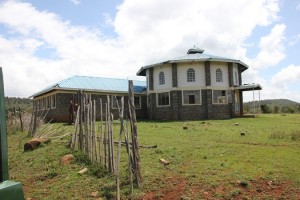
The Maasai organization OSILIGI has been dissolved by the Kenyan administration after activists had demonstrated on one of the big farms in the area in 2003. The fight for land rights has been lost (so far). But one of the schools OSILIGI built is still there – and highly valued by the tribesmen and women. Continue reading Maasai issues today
The Maasai NGO Osiligi (year 2000 text)
OSILIGI: Hope for Maasai people
Made to measure: elementary school for the Maasai
“We haven’t enough cattle, so my parents can’t send me to school”, says Damaris Timorit, a 10-year-old Maasai boy. It’s a long way to the nearest village school and, moreover: “In the dry season we can’t go to school anyway, because then we’re moving around with our animals looking for grass and water.” Continue reading The Maasai NGO Osiligi (year 2000 text)
The Solar Lamps 2015
In Kenya sales of these solar lamps are stalling. The Kenyan Importer Francis Kamau seems not to vest much interest in them. „It’s become just a small part of my business“, he tells me on the phone. “My main work now is in construction. ” After three visits in Kenya with tries to fix an interview he mails me to please leave him alone and contact the German exporter Solux. Which I do. Continue reading The Solar Lamps 2015
Moneymaker in Action
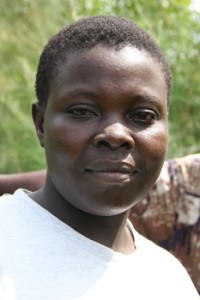
On the road from Kisumu to the airport, Joyce Mkoya operates a tree nursery. Continue reading Moneymaker in Action
“900,000 pumped out of poverty”
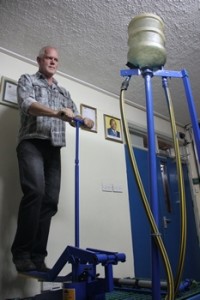
What I find when I search for Approtec, the Expo 2000 project, is a company that promotes just one product: a water pump. Today the company is called Kickstart and their pump they call “Moneymaker”. Continue reading “900,000 pumped out of poverty”
Streetwise today: How the former street children helped themselves
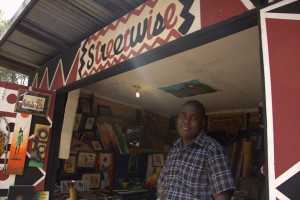
If the Lake Victoria Program is the largest – with a budget of around 130 million Dollars in its second phase – “Streetwise” is probably the smallest among the Expo 2000 projects. A project that costs nothing to any outsiderbut earns some thousand Dollars per year for a group of youth and young adults. Continue reading Streetwise today: How the former street children helped themselves
